Juli McLoone
Posts by Juli McLoone
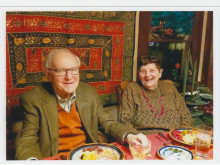
Daniel T. Longone (1932-2024), University of Michigan Chemistry Professor Emeritus, passed away on January 28th, 2024. Dan and his beloved wife Jan, who predeceased him in 2022, established the Janice Bluestein Longone Culinary Archive (JBLCA). Residing in the University of Michigan Library's Special Collections Research Center, the JBLCA offers an incredible resource to students and scholars of food and drink.
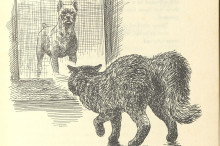
Join us next Thursday, 15 February between 4-6p for our next Third Thursdays at the Library event!
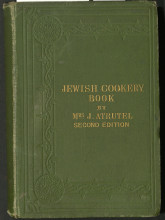
Guest post by Nathalie Ross, Heid Fellow, on her research in the Janice Bluestein Longone Culinary Archive. Nathalie is a doctoral candidate in the History Department at the University of North Texas, specializing in Jewish Food Studies.
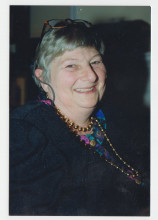
Join us on Thursday, 11 May 3-5 pm for a panel honoring the impact of collector, donor, and adjunct curator Janice B. Longone (1933-2022) through her work building the renowned Janice Bluestein Longone Culinary Archive (JBLCA). The JBLCA encompasses more than 25,000 items including 19th and early 20th century cookbooks, charity cookbooks, immigrant cookbooks, food-related advertising ephemera, and restaurant menus.
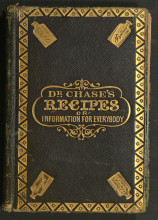
We are excited to announce a special collaboration between the Special Collections Research Center, the William L. Clements Library, and the students of ALA 264 Much Depends on Dinner. From April 17 to May 8th, you will be able to find culinary history across campus on Diag Boards and Campus Bus Signs. To see all five selected items together, scroll through this blog post or visit the Shapiro Screens (April 16-May 7) on the first floor of the Shapiro Library.

The Special Collections Research Center is pleased to announce the installation of new labels contextualizing John James Audubon’s The Birds of America, which is on display in the newly-renamed Hatcher Gallery Exhibit Room. the new labels acknowledge Audubon's role as an enslaver and vocal opponent of abolition, and further contextualize both The Birds and its author within the social and scientific landscape of the 19th century.

Join the Special Collections Research Center in Hatcher next Tuesday (14 February) at 4 pm for our second After Hours open house of the Winter term, exploring materials related to love and romance.

Join the Special Collections Research Center next Tuesday (13 September) at 4 pm (Eastern) for our first After Hours virtual open house of the term with the curators of A Perfect Pairing!
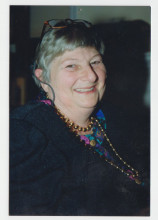
Culinary historian and Adjunct Curator Janice Bluestein Longone passed away on August 3, 2022 at the age of 89. Jan was the principal donor and driving force behind the formation of the Janice Bluestein Longone Culinary Archive, the culmination of a life-long interest in culinary history that she shared with her husband Dan Longone, University of Michigan Chemistry Professor Emeritus.
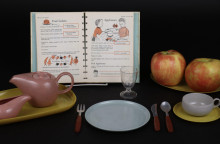
A new exhibit pairs a dozen selections from the Janice Bluestein Longone Culinary Archive (Special Collections Research Center) with dishes from the International Museum of Dinnerware Design. Enjoy this display in the Audubon Room from Thursday, July 7 to Thursday, September 29.